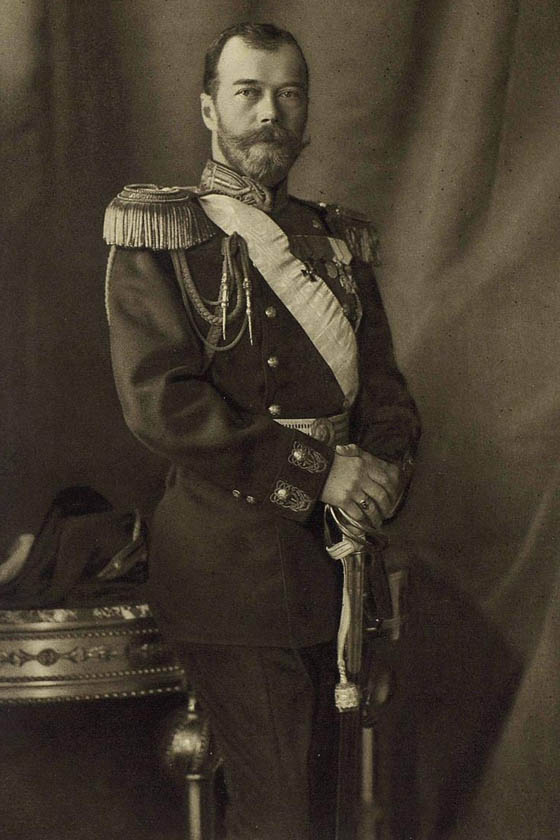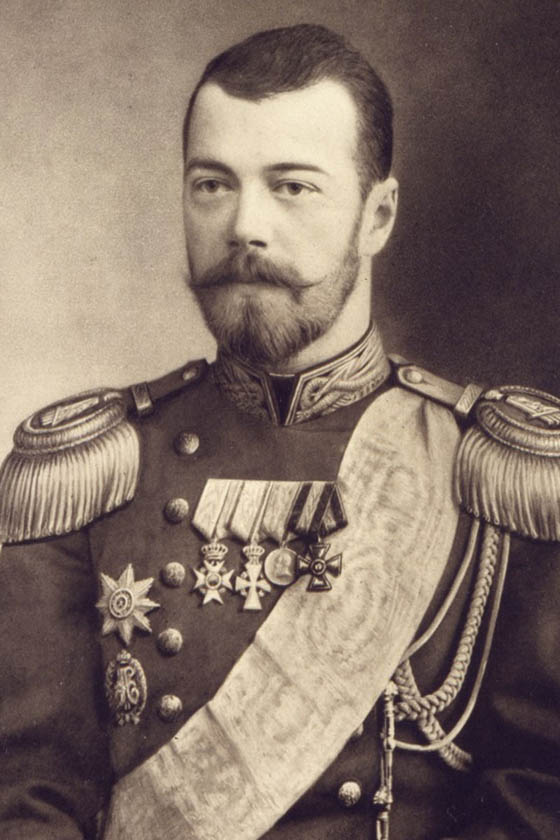Nikolay II ruled Russia from 1894 to 1917. He became the last emperor of the Russian empire. His rule fell on the period of sharp aggravation of political struggle in Russia, and also deteriorated foreign policy (the Russian-Japanese war of 1904-1905; Bloody Sunday; Revolution of 1905-1907 in Russia; the First World War; February revolution of 1917).
He was born on May 6th (19), 1868 in Tsarskoe Selo. He was the fourteenth and the last Russian emperor; he acceded to the throne as the elder son of Alexander III after his father’s death. His mother was Grand Duchess Maria Fedorovna, his spouse was Alexandra Fedorovna (Alisa Gessenskaya).
The coronation ceremony took place on May 14th (26), 1896. He abdicated both on behalf of himself and his son, Prince Alexey, after the February revolution on March 2nd (15), 1917. The younger brother of the emperor, Prince Mikhail Aleksandrovich (didn’t accept the throne) was declared the successor, but then the country was headed by George Evgenyevich Lvov, as the chairman of the Provisional Government. Nikolay II together with his family was executed by a firing squad by the Bolsheviks during the night from July 16th to July 17th, 1918 in Ekaterinburg. He was canonized by the Russian Orthodox Church in 2000 as a martyr.
The main events during the reign of Nikolay II (1894-1917):
- 1904-1905 – Russian-Japanese War
- 1904-07 – Formation of the Entente Alliance
- January 9 1905 – “Bloody Sunday”
- 1905-1907 – First Russian Revolution
- 1914-1918 – First World War
- February 28th – March 3rd, 1917 – the February Revolution, abdication of Nicholas II of Russia
The publication of the Manifesto on August 6th, 1905 announced the transition from monarchy to a republic. Pursuant to it, the State Duma, which became the first parliament in Russia, was established, which set forth the voting rights of the Russian citizens. “The Imperial manifesto on improvement of the state organization” (the October Manifesto), published on October 17th, 1905, proclaimed fundamental rights and freedoms, such as personal immunity, freedom of worship, speech, meetings, unions, and electoral rights. The Manifesto of October 19th, 1905 proclaimed the establishment in Russia of the Council of Ministers, a new government body. Such decrees as “The Establishment of the State Duma” (dated February 20th, 1906), “On Re-Organization of the State Council” (dated February 20th, 1906) in conjunction with the basic state laws of April 23rd, 1906 also had a far-reaching constitutional importance.

